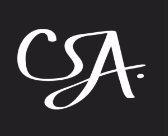After launching in South Africa just over a month ago, we decided to delve into what its arrival means for the South African music industry and the artists that feed it.
Words: Tshiamo Seape

It’s safe to say It’s never been a better time to be a music lover. Streaming services have made the discovery and sharing of music easier and far more exciting. Fans have greater control over what they listen to and when, and for the artists making the music, streaming services have afforded them greater reach and a means by which to control where their music is heard.
In South Africa, we have had a number of services to choose from for a number of years. Google Play, Apple Music and Deezer each boast catalogues of millions of songs, but the fanfare surrounding Spotify’s arrival is due mostly to its superior music discovery.
A large catalogue is obviously a prerequisite for any streaming service, but this isn’t the be all and end all of digital streaming. Even the most eager fan can only listen to so many songs in a day and trudging through that volume of content is hardly an efficient means of discovering new talent – especially those on the fringes of the mainstream.
While all of Spotify’s competitors go to great lengths to source and promote new music to their subscribers, they do not do it as seamlessly as the new kid on the block. As a first time Spotify user, the difference in discovery is vast. Whatever algorithmic magic the tech wizards at Spotify HQ have employed in their app is something really refreshing. Updated daily mixes and new release Mondays and Fridays meant I was instantly inundated with new music from my first trial.
All streaming services offer new music, but so far none seem to have taken as tailored an approach as Spotify – it’s not only about “new”, it’s about “you”.
This seems like an arbitrary statement but in practical terms, it works quite simply: For the most part Apple, and others, segment their suggested playlists by genre and activity – Chill, Indie, Power Workout etc. This is useful but not ingenious. These distinctions just don’t cover the nuances that define music today. Spotify curates hours of listening based on far more specific genres and sometimes based on just a handful of artists that you have selected. The long and short is that within the first few minutes of using Spotify (after your initial set up) you’ll undoubtedly find yourself listening to more new music that you actually enjoy.
The ease of discovery will pay big dividends for local music fans especially. Not enough can be said for the advancements of music produced in South Africa by South African artists. Local ears need only to catch up to what’s going on within their own borders to realise that homegrown music is worth our attention –
“It’ll only help improve the quality and rate of music our industry will produce. More content from your favourite and more content from new artists – Everything we need”, says SA rapper and producer Da L.E.S.
The biggest win for South African artists that comes with the arrival of Spotify is the lowered barriers to entry into the industry. Through self-promotion or the use of third parties like Tunecore and Distrokid, artists can distribute their music easily and to a much wider audience than previous generations. With some of these services taking a portion of the revenue from downloads or charging a flat rate, the trade-off is well worth it considering the size and scope of the potential audience.
What can’t be overstated, and what hinders the growth and exploration of locally born music, is the idea, conscious or otherwise that “South African music” is a genre that encompasses all of our musical output. We tend to discount South African artists who do not lie neatly in spaces of House, and Hip-Hop. Many thriving niche, and not so niche musical landscapes exist within the South African context begging for mainstream attention, approval, and promotion. This is where Spotify shines, and this is where the biggest benefit for South African artists lies. Because the exploration is so much more tailored to individual tastes it allows for the discovery of smaller artists who would not ordinarily get the attention of the radio stations or listeners with populist sensibilities.
Rapper Yanga Chief goes on to say “I think it will inevitably increase the artists’ fan base across the globe and hopefully put a spotlight on different genres of African music. I’m excited to see artists touring the globe as a result of the worldwide exposure that Spotify offers”.
South African artists are in for a much-deserved boost with the arrival of Spotify. Without much effort, listeners of all kinds will find it exceedingly easy to access the artists they had no idea they loved. Because of the depth of talent within every genre of locally made music even the most tentative exploration of what local artist have to offer yields a varied range of artists and music styles of a global standard.





